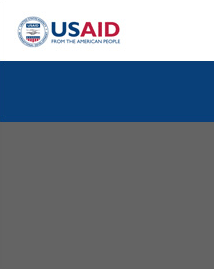There are many roadblocks to building a strong democracy in Nigeria. Conflict -- triggered by political and communal competition, ethnic, religious, or resource allocation rivalries -- poses a major threat to democracy. Corruption is a key problem that pervades the daily lives of Nigerians. Civil society lacks both the capacity and the resources to effectively engage with government and advocate for change.
On the bright side, Nigeria experienced noteworthy democratic successes in 2011, including one of the most free, fair and credible elections in the country’s history. Also, recent legislative progress includes the passing of the federal Freedom of Information (FOI) Act. For the first time, public institutions are legally required to keep proper records and are obliged to respond to requests for information within seven days. Another positive development includes the passage of the Public Procurement and Fiscal Responsibility Bills by the Sokoto State House of Assembly in 2012.
USAID supports credible election, and efforts to deter corruption, mitigate conflict, promote accountability, and ensure efficient delivery of services. Programs support civil society organizations’ advocacy campaigns for key policy reforms at the national, state and local levels, build partnerships between civil society coalitions and the media, reform-minded government institutions and the private sector.
USAID assistance builds the capacity of local and state government officials to assume greater responsibilities and address demands and expectations of their constituents. USAID is an active participant in donor coordination and in efforts to promote progress in Nigeria’s transition to multi-party democracy.








Comment
Make a general inquiry or suggest an improvement.